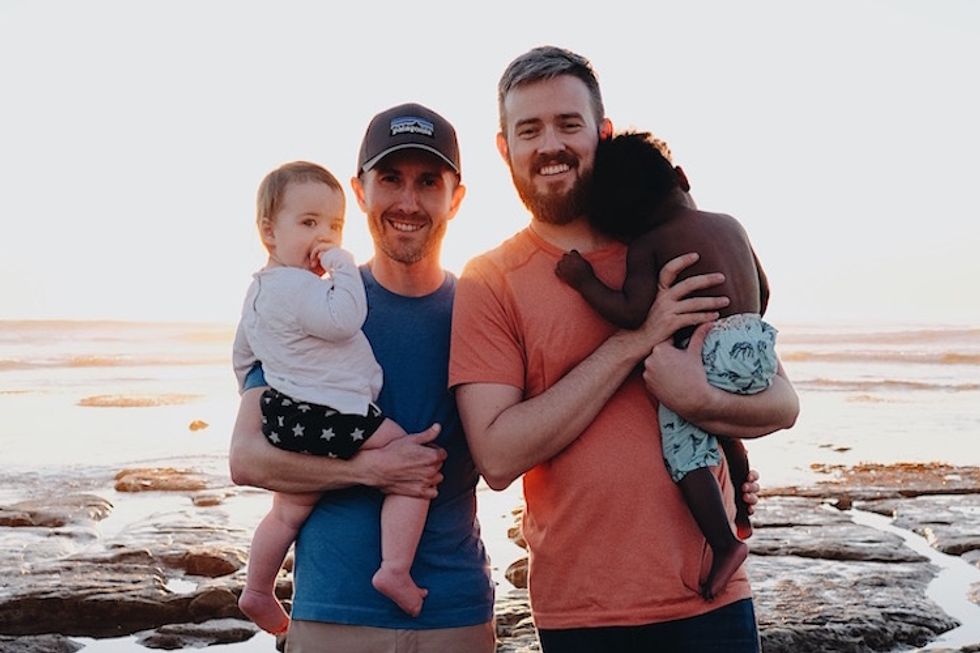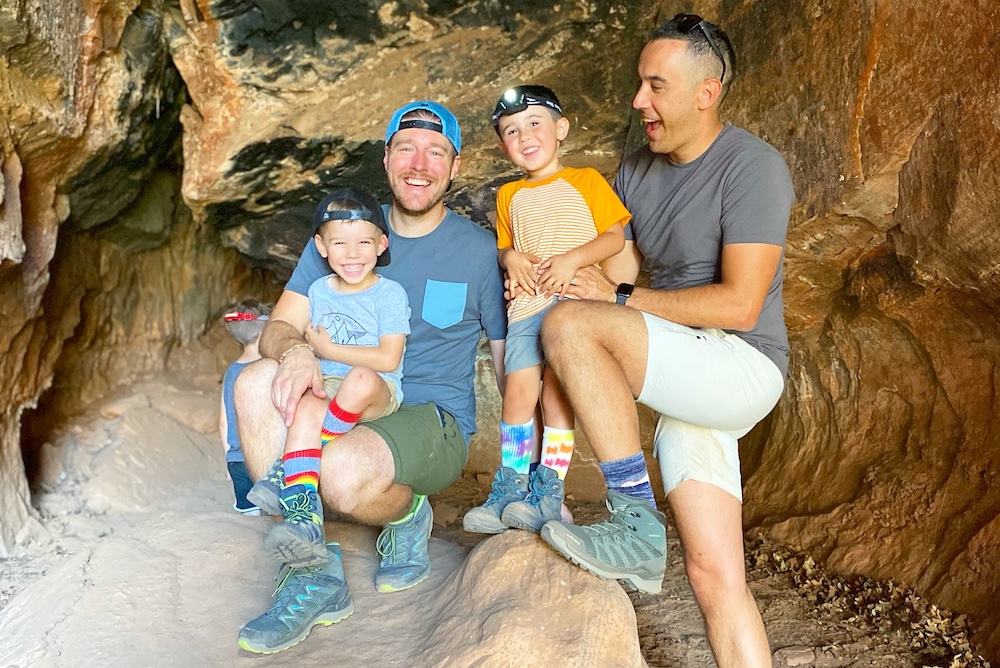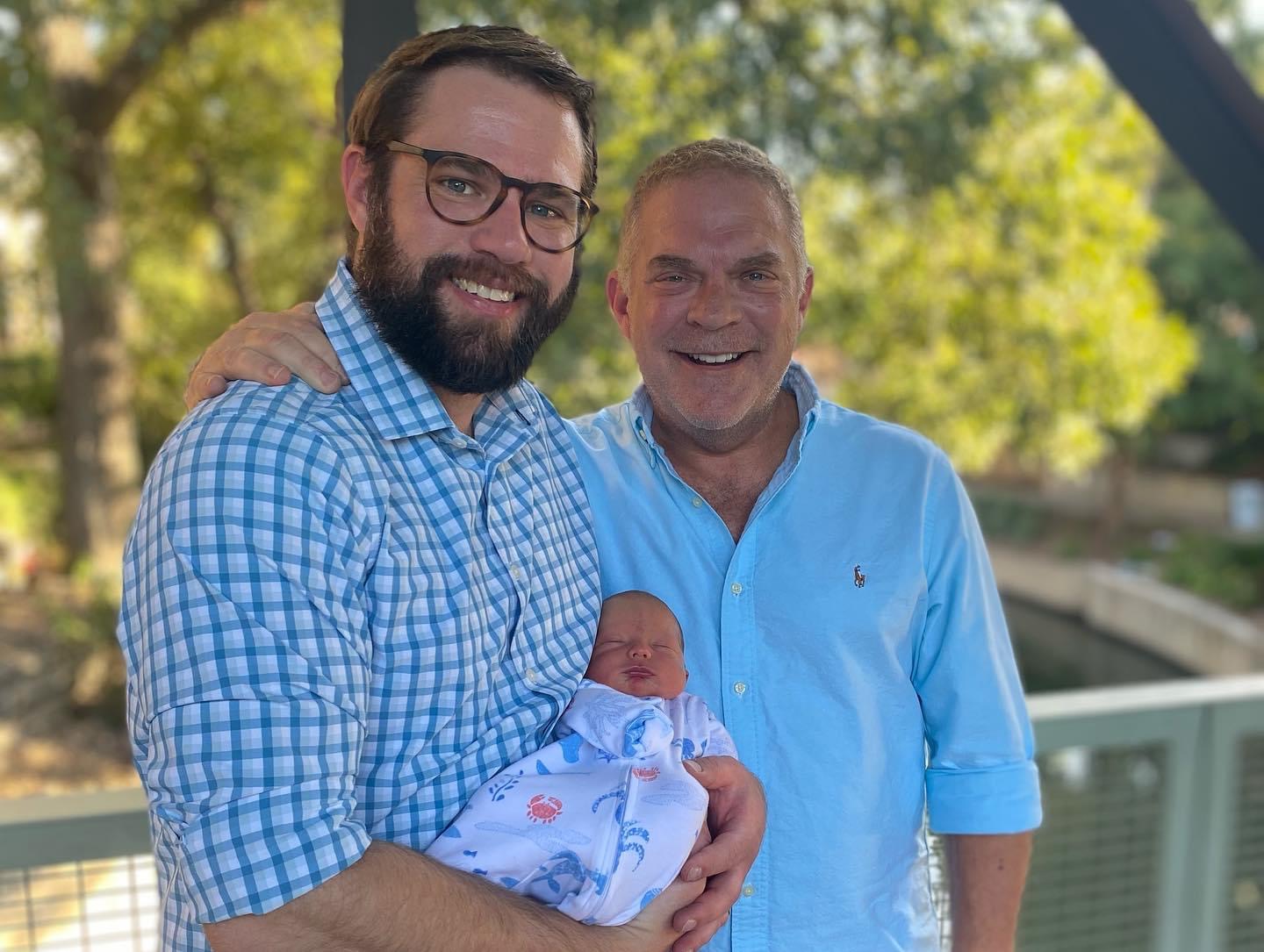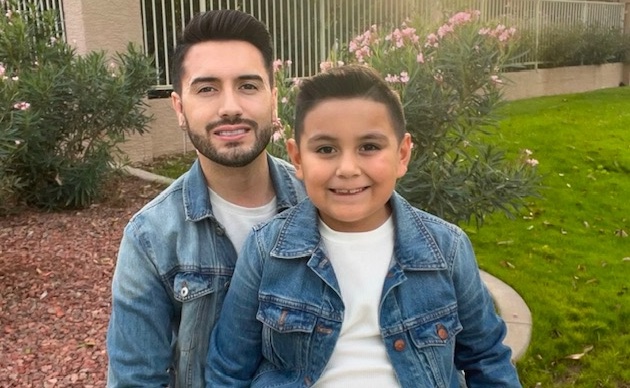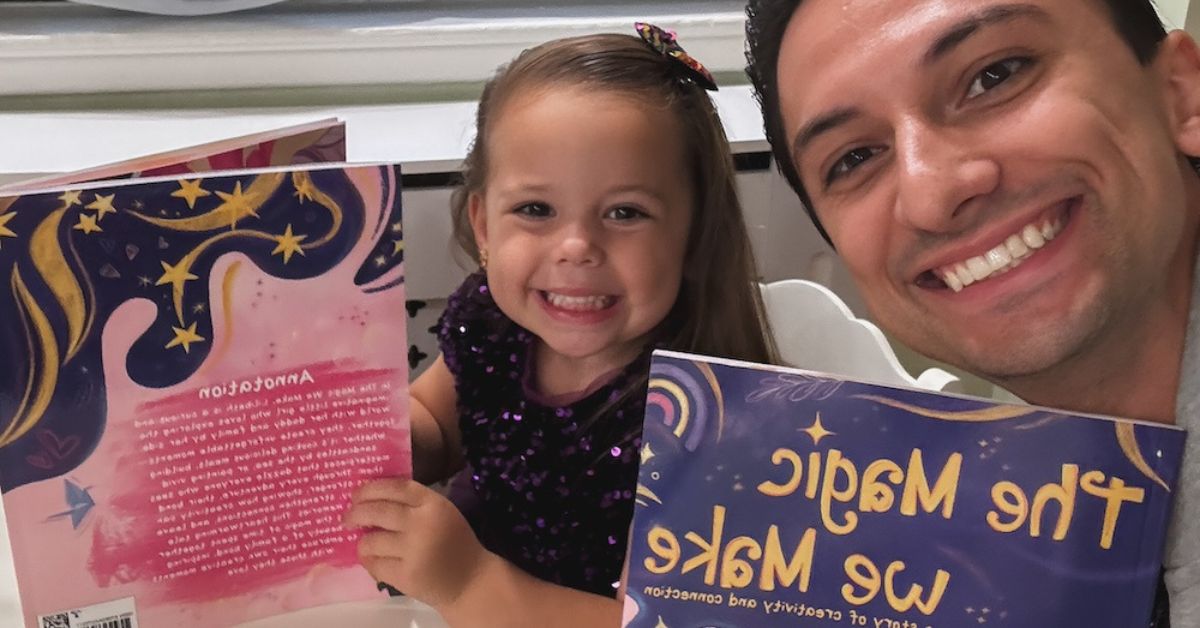May is National Foster Care Month, and to celebrate, we’ve spent the last few weeks bringing you stories of gay men whose families were forged through the foster care system. Still, many prospective gay dads may be wondering: is foster care the right path for me?
Unfortunately, this is an extremely personal question and one that ultimately only you can decide. But to help those wrestling with whether or not to pursue adopting through the foster care system, we decided to approach three gay couples with experience in the subject to get their take on some common questions.
First let’s meet the dads:
Christopher and Patrick have two children, Isabella and Jordan. Isabella came to her dads at Halloween in 2003, and Jordan joined the family in 2007.
Thomas and Jonathan also have two children, Charlotte and Grace, who both came to them as newborns in 2015.
Charles and Joaquín have one son, Alex, who came to them in 2013, and whose adoption was finalized May 19, 2014.
#1: How long does it take to adopt from the foster care system?
For Isabella, our first child, we spent a good deal of time preparing, doing research, completing application paperwork and interviews, and doing the necessary training, so in all we spent about a year and a half in that part of the process, but that was our choice to take it slow. We waited about 5 months for a match; part of that was our decision, some times we were passed over for placements, and weeks went by when we were just waiting. Once our daughter was placed with us, it took 2 years for the adoption to be finalized. For Jordan, our second: We waited a bit longer for the placement, waiting on the list for about 8 months. After he was living with us, it took less than a year for finalization. –Christopher and Patrick
Charlotte our younger daughter was extremely fast based on how she came into care. Her adoption finalization occurred 9 months to the day of birth. Grace who had a bit more uncertainty around her plan, took 18 months. In both cases we were told this was fast. -Thomas and Jonathan
Around 11 months. -Charles and Joaquín
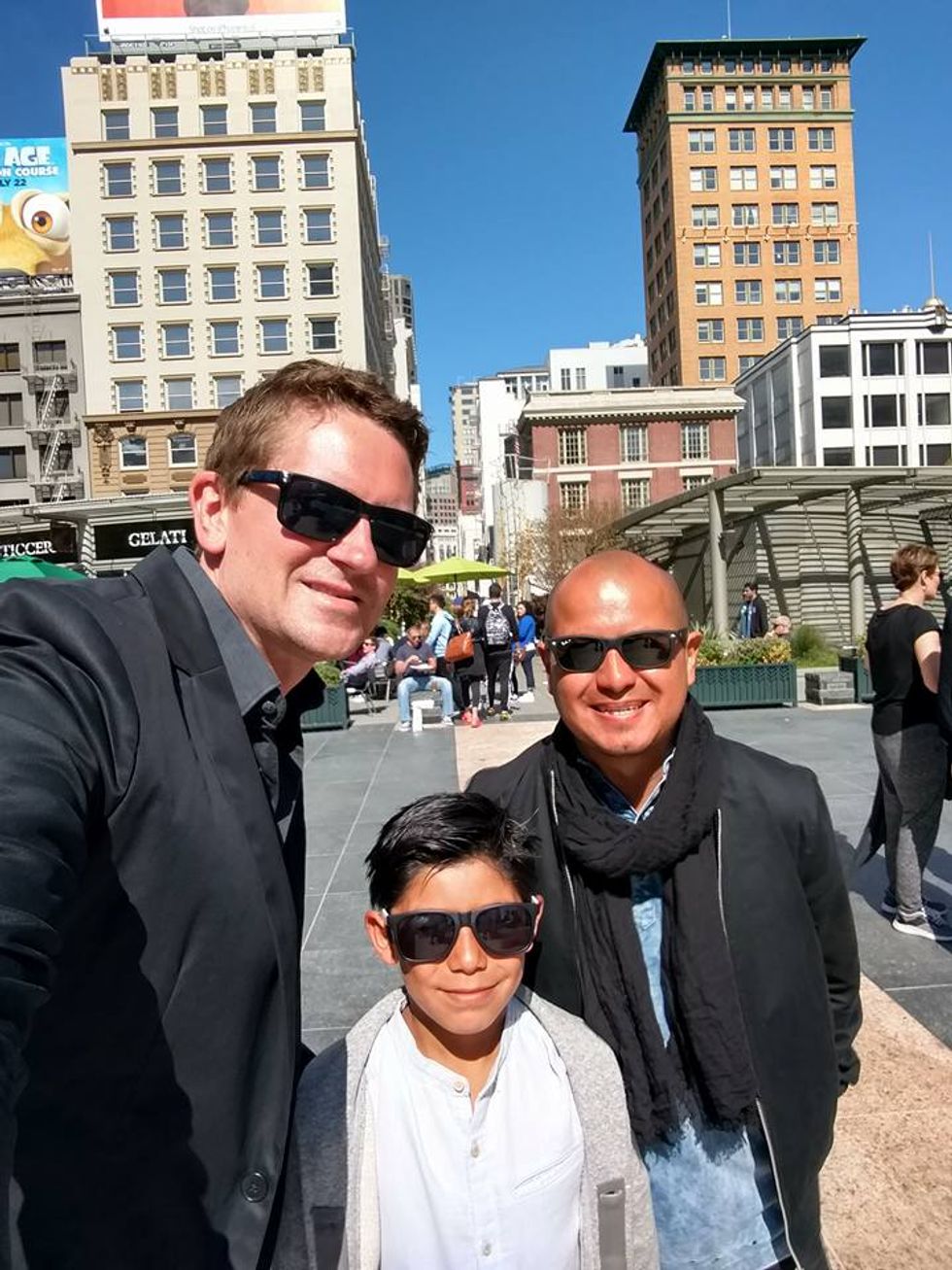 Charles (left), Joaquín (right) and Alex, 2017
Charles (left), Joaquín (right) and Alex, 2017
#2: Which agency did you work with?
Amara in Seattle, Washington. –Christopher and Patrick
Baltimore City Department of Social Services, Maryland. –Thomas and Jonathan
The Kinship Center which is part of Seneca, California. -Charles and Joaquín
#3: How much does foster care cost?
For all three families, the cost ranged from $0 to $5000.00.
Costs were relatively low. With what the agency was charging, plus costs for training/certification, and lawyers fees it was around $5,000.00 (but this was 10-15 years ago, so I’m sure costs even with our agency have increased since then). –Christopher and Patrick
There was no cost, although some of the medical bills we used our own insurance, so we had co-pays to take care of. –Charles and Joaquín
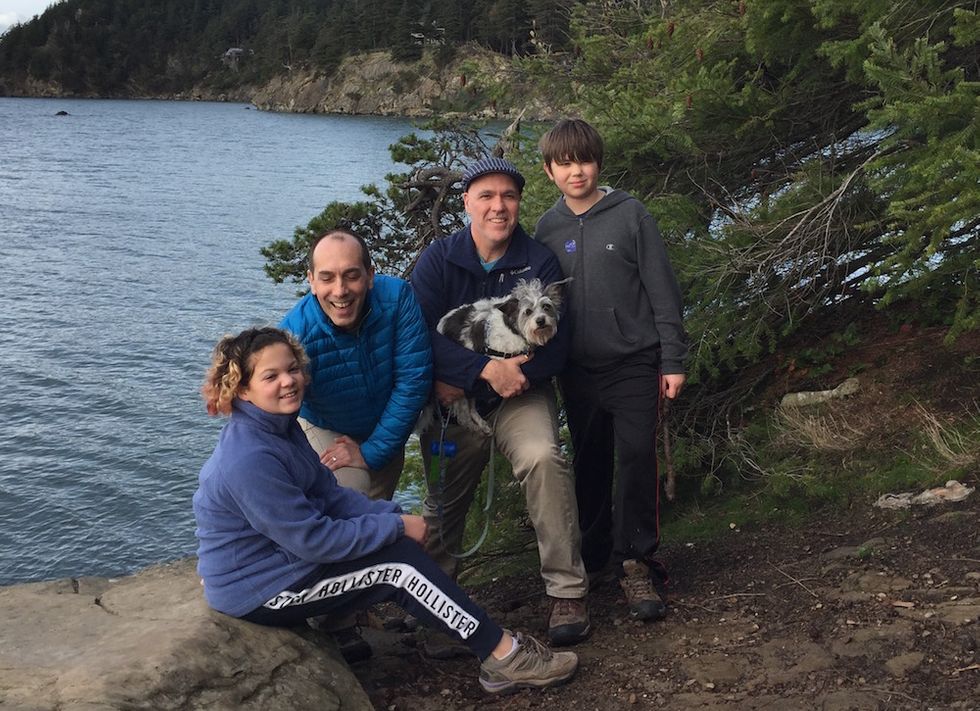 Christopher (middle, left) and Patrick with Isabella and Jordan, 2017
Christopher (middle, left) and Patrick with Isabella and Jordan, 2017
#4: Does the state offset any financial costs of foster care?
Costs for many things were covered while the kids were in foster care prior to finalization. Since then, the state has continued to provide a monthly stipend of less than $1,000.00 per child, which we have used to cover the cost of doctor visits, counseling, and educational support. –Christopher and Patrick
The state offers a per diem based on the level of need of the child. There are also additional resources which are made available to foster children such as WIC, medicaid, clothing/emergency assistance and daycare vouchers. -Thomas and Jonathan
Yes. We receive a monthly stipend during foster care and then post-adoption. The stipend definitely helps and did allow us to send him to various camps and programs. –Charles and Joaquín
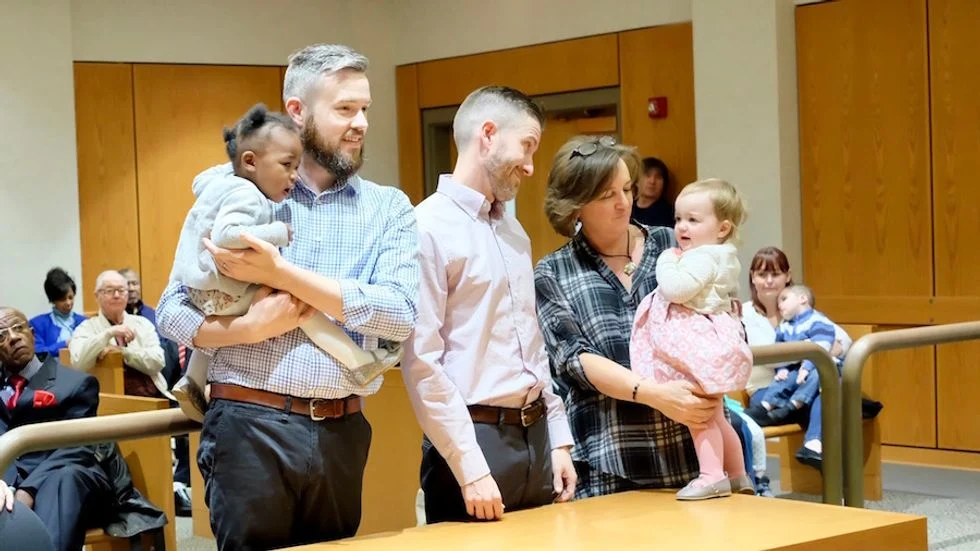
#5: Can foster parents specify preferences about the child or children they are seeking to foster-adopt? If so, are you able to give us any examples?
Our agency had a whole list of conditions and characteristics, ranging from the child’s race to a variety of medical conditions (including any/all known biological family medical conditions), to known exposure to drugs and alcohol during pregnancy. For each, the agency asked us to let them know if we would be willing to consider a child, would definitely not consider a child, or were unsure and might need more information about considering a child for each of the qualities/circumstances. It was an agonizing process. There was a lot we didn’t know, and a lot we were just unsure about. Ultimately though it did help us think through what we would be able to handle. Costs for many things were covered while the kids were in foster care prior to finalization. Since then, the state has continued to provide a monthly stipend of less than $1,000.00 per child, which we have used to cover the cost of doctor visits, counseling, and educational support. –Christopher and Patrick
In our experience, you can specify to some extent, however you will likely have to still say no a lot. In our case medically fragile was something we were not prepared to undertake. We also stated that we did not want short-term placements. Even with those preferences stated, you still get a lot of calls for children who may stretch your limits. In addition, the long-term outcome may not be known, so to some extent you are taking a chance. -Thomas and Jonathan
Yes, and that is encouraged. We told them we wanted to adopt a boy or girl age 3 to 6. You can also specify which type of developmental issues you are not comfortable with. –Charles and Joaquín
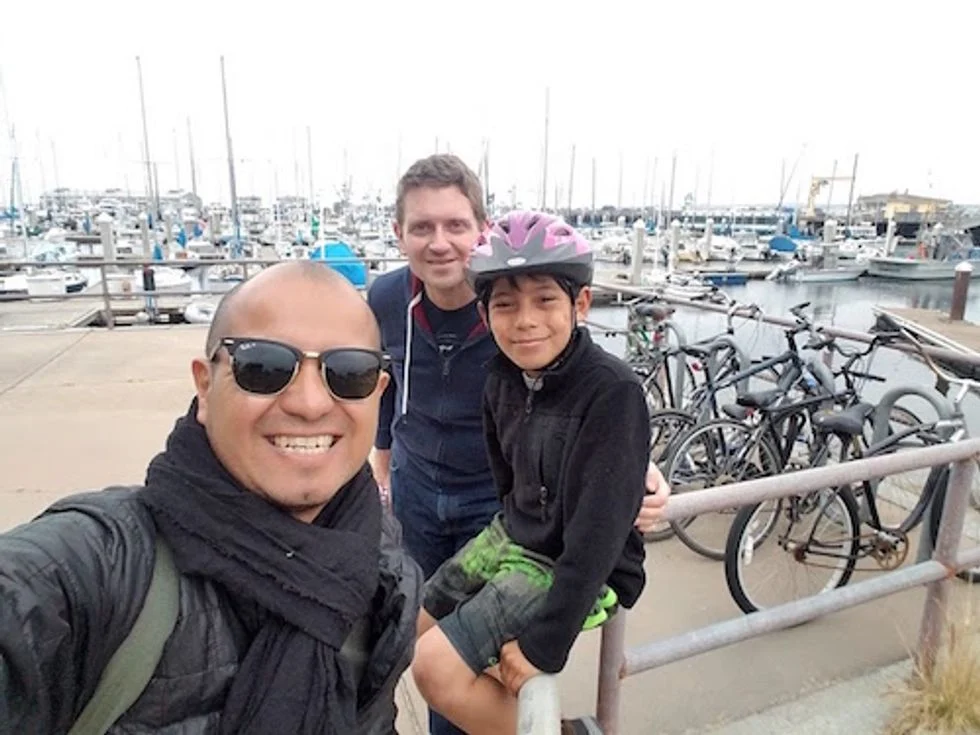
#6: Are you able to find out why your child was in the custody of human services?
Yes. Absolutely. We would not have considered adopting if we didn’t know this information. We were able to review extensive case files of each child and court documents related to the placement in foster care as well as the movement to adoption. –Christopher and Patrick
Yes, we knew everything (available to the agency). Some we learned over time. -Thomas and Jonathan
We did early on in the process. –Charles and Joaquín
#7: Did you find out about the child’s health before fostering? Was it accurate?
This is a bit difficult to answer. Isabella was 2-1/2 months when she came to us, and we had access to all medical records from the time of her birth. Jordan was 16 months, and we had access to his medical records as well. One concern for both children was pre-natal exposure to drugs and alcohol. Both were screened for physical characteristics of Fetal Alcohol Syndrome, and both screened negative. Within the last 10 years, as research has continued and doctors have gotten more specific about the long-term physical, developmental and behavioral affects of alcohol on individuals, the terminology has changed. Fetal Alcohol Spectrum Disorder is the new umbrella term under which a variety of specific diagnosis exist. With further testing and evaluation, Jordan was diagnosed under the category: Neurobehavioral Disorder/Alcohol Exposed. The good news is that this more specific diagnosis has meant that we can get the targeted medical and behavioral support that Jordan needs. –Christopher and Patrick
Since both of our children were newborn, we had to go on the medical advice of the placement worker. For the most part the information was accurate. -Thomas and Jonathan
We received a lot of medical information early on. It was accurate, although by the time he moved in one of the medical issues had already been resolved. –Charles and Joaquín
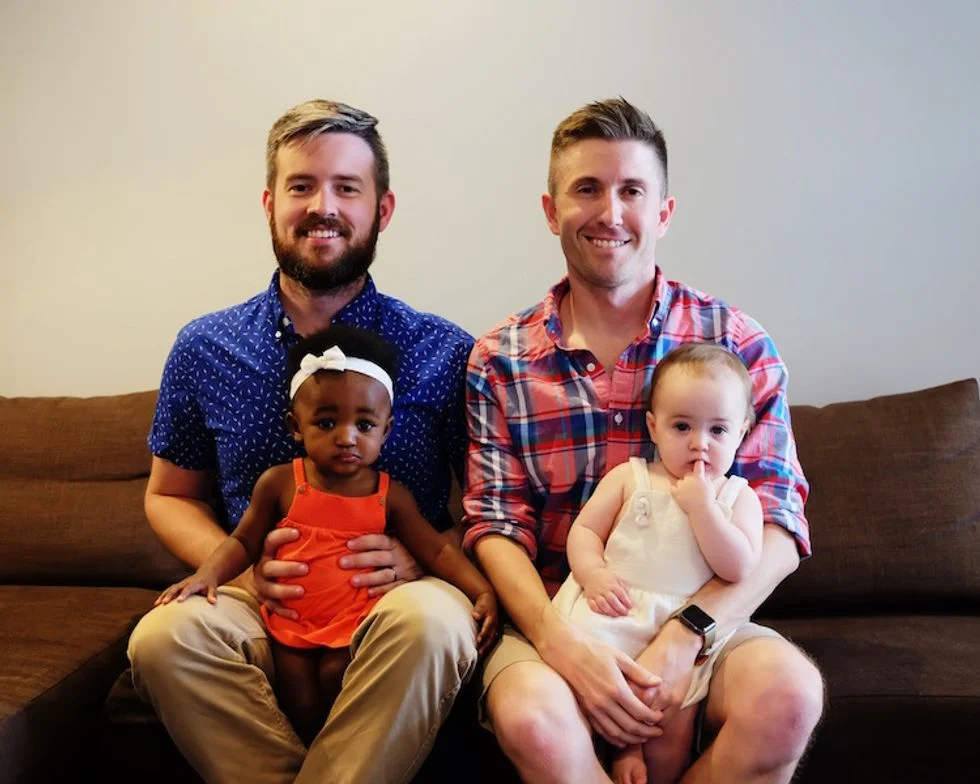
#8: Are there support groups for foster parents, and if so, did you attend any and find them beneficial?
Our agency tried to coordinate a few support groups, but we never found any that helpful. We ended up creating our own gay dads support group, that has taken different forms and filled different needs over the years. -Christopher and Patrick
There were opportunities to meet with other parents, but we found ourselves so busy with two babies, we rarely attended. -Thomas and Jonathan
There are many support groups both online and in person. We did attend a local one through our agency and ended up becoming fiends with several families. –Charles and Joaquín
#9: How did you find your local foster care agency/organization?
We found our adoption agency very easily: at the time, they were really the only agency in the area that was working with same-sex couples. Yes, in the early 2000s. In Seattle. Crazy, but true. -Christopher and Patrick
Our neighbor and his husband shared their story with us, and directed us the City. -Thomas and Jonathan
It was recommended to us by our local county agency. –Charles and Joaquín
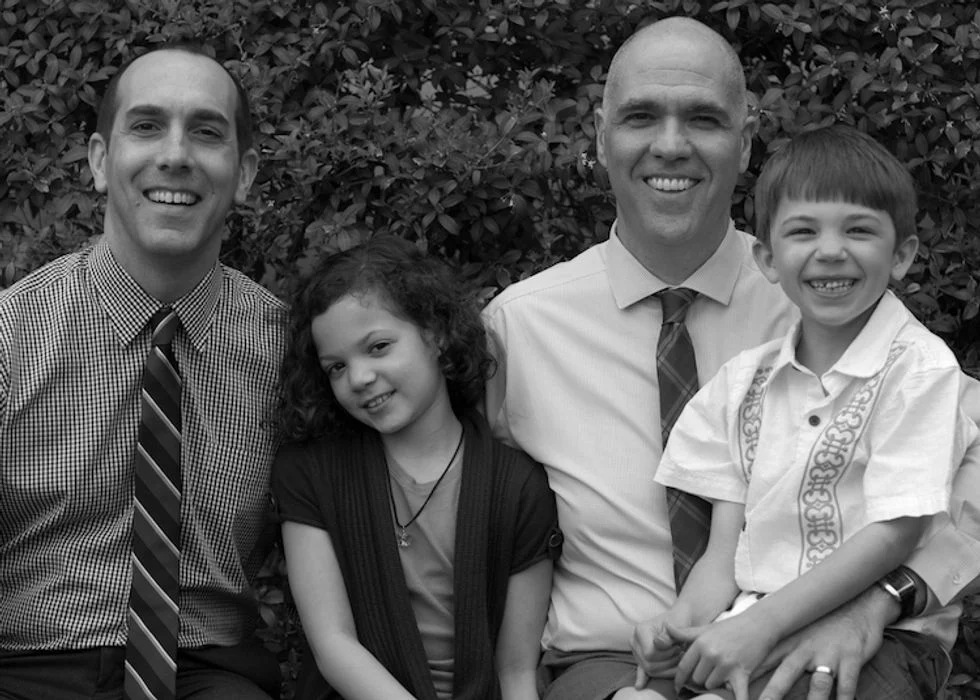
#10: How long did it take you to become a licensed foster parent and what was the training like?
At that time, the training was 40 hours, spread out over 4 Saturdays. It was long, excruciatingly dull and boring, and as gay men we definitely stood out. Since then, I believe the state training has been streamlined. And, from what I’ve heard, there are many more gay men (and women) in the room. –Christopher and Patrick
It took us about 4 months to become licensed. Training was 8 2-hour trainings, which unfortunately in a large city like Baltimore was filed with people who were not there to take it seriously. A lot of the training material is common sense, but does open your eyes to potential situations that you may not be aware of. -Thomas and Jonathan
That took awhile. We did 9 weeks of classes (3 hours once a week) and then had background investigations plus a lot of paperwork to fill out. The entire process took around 6 months. –Charles and Joaquín
#11: Please tell us about your home study experience.
We (mostly) loved it. We were each asked to answer a set of questions in writing, and were told to expect that our answers would run about 10 pages in length total. That was accurate. Some people hate this aspect, and resisted the intrusion. As a writer, I loved it, and appreciated the time to consider my desire to be a parent, my own experiences as a child, and my hopes and fears for what it would be like to parent. We were each interviewed individually and then together. A case worker visited our home for an inspection, which of course we passed with flying colors! I admit that at times we both harbored resentment, especially as it related to our sexual orientation. Why did we as gay men who wanted kids need to have our lives looked into so deeply, when a straight couple could just have sex and it was done? But of course the part of fostering a child was the same for all individuals or couples, regardless of sexual orientation. And we both remarked that we came through the process thinking that everyone who wants to parent should have to go through such an intense, soul-searching, collaborative (if you’re partnered) process. It helped us become better parents. -Christopher and Patrick
Since we started the process of adoption with a private agency, we had been through the home study process before. Unfortunately none of our existing home study could be used. Most of the time was waiting for inspections by local agencies. -Thomas and Jonathan
It was lengthy, however we both understood the reason they were asking so many questions and requesting so much information. We found that by doing a little every day, we were able to get through it. –Charles and Joaquín
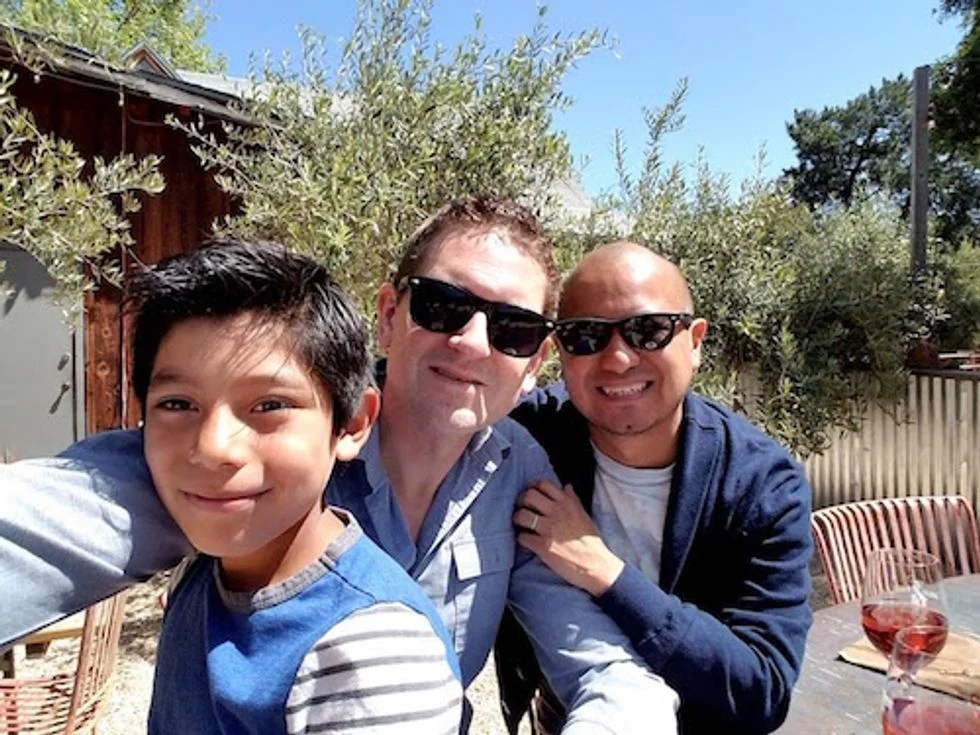
Alex with his dads, Charles and Joaquin
#12: How did you ensure that your agency was gay friendly and had a good track record of placing kids with gay dad families?
They were the only game in town. We asked tons and tons of questions. They were–and continue to be–fierce advocates for our community. Not always perfect, but certainly invested and continuing to do all they can to reach out, advocate, and support. -Christopher and Patrick
For us, since we knew our neighbors were successful, it was worth a shot. Plus the City of Baltimore has a non-discrimination policy includes sexual orientation. On a side note, the City is still actively seeking homes for LGBT teens, something we were not prepared to do. -Thomas and Jonathan
We asked right away. We were told it was not an issue. –Charles and Joaquín
Many thanks to these families for giving us an invaluable look into adopting through the foster care system in the United States!

